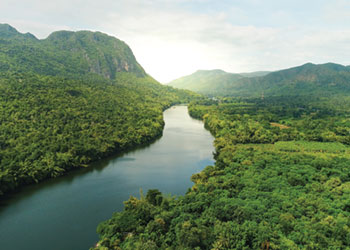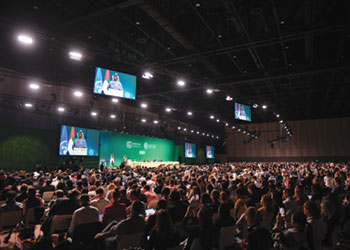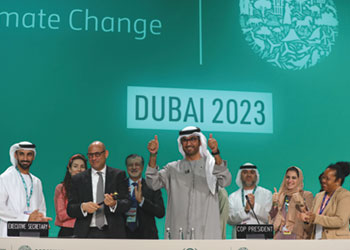
 COP28 was to turn the global stocktake's findings into action
COP28 was to turn the global stocktake's findings into action
At the heart of the COP28 negotiations was the culmination of the first-ever "global stocktake" under the Paris Agreement and, in particular, what it would say about fossil fuels.
This core component of the Paris Agreement involves an exhaustive appraisal of how far the world has come in tackling climate change and how far it still has to go.
The COP28 in Dubai called upon countries to contribute to a list of goals, including "transitioning away from fossil fuels…accelerating action in this critical decade".
After nearly 30 years, this is the first time a COP decision has explicitly called out all fossil fuels.
Nevertheless, the outcome fell short of the full "phase-out" many said was needed to stay below 1.5 deg C, as well as in terms of the finance needed to support the transition, a report by Carbon Brief said.
The stocktake also calls on countries to contribute to the global tripling of renewable energy capacity and doubling of the rate of energy efficiency improvements by 2030.
Overall, the language in the stocktake text makes only limited calls to action, with most of the 196 paragraphs and 21 pages using non-operative verbs such as "recalls", "notes" or "welcomes" that do not require any kind of response from countries.
It contains just eight "decides" and eight "calls on", with the latter being the weakest of the various terms used to invite countries to take action in response to a COP decision.
The stocktake is a five-yearly process, designed to check progress against Paris goals and inform the next round of national climate pledges, known as nationally-determined contributions (NDCs).
It is a key part of the Paris "ratchet mechanism", according to which countries must regularly ramp up climate action over time, until their collective goals can be met.
In the two years leading up to the summit, a technical stage of the stocktake had already shown that countries were falling far short of their collective climate goals.
The task for COP28 was to turn these stark findings into action.
The stocktake informs the next round of NDCs, which run to 2035 or even 2040. By the next stocktake in 2028,
Ahead of the talks in Dubai, 106 EU, African and island nations backed a fossil fuel phase-out, with this list expanding to "at least 127 countries" as the talks went on.
The IEA in the meanwhile had promoted five pillars needed to get on track for 1.5 deg C.
The final stocktake went some way towards meeting four of them: tripling renewables; doubling efficiency; tackling methane; and an orderly decline in the use of fossil fuels.
However, the fifth pillar on finance for developing countries was largely missing. Responding to the deal, International Energy Agency (IEA) chief Dr Fatih Birol said "greater efforts are needed on finance".







































































